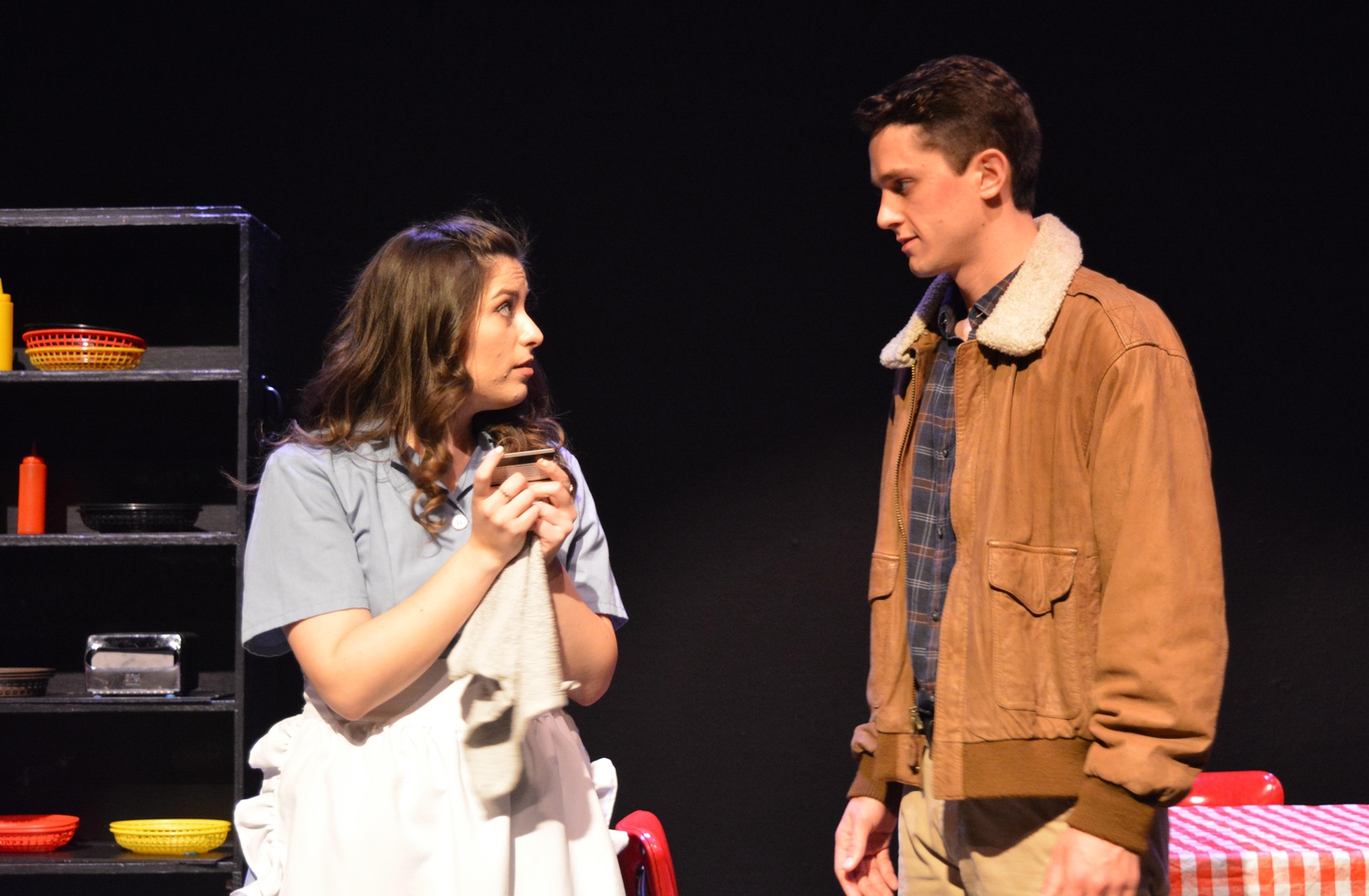
News
Summers Will Not Finish Semester of Teaching as Harvard Investigates Epstein Ties

News
Harvard College Students Report Favoring Divestment from Israel in HUA Survey

News
‘He Should Resign’: Harvard Undergrads Take Hard Line Against Summers Over Epstein Scandal

News
Harvard To Launch New Investigation Into Epstein’s Ties to Summers, Other University Affiliates

News
Harvard Students To Vote on Divestment From Israel in Inaugural HUA Election Survey
‘Dogfight’: A Beautiful, Nostalgic Social Critique

Packed with romance, misogyny, war, and above all, nostalgia, the Harvard Radcliffe Dramatic Club’s production of “Dogfight” made impressive use of staging and dynamic musical performances to display the the broad harms of toxic masculinity in its complex characters. The emotional journey is steeped in the failings of a familiar yet distinct era.
“Dogfight,” a musical by Justin Paul, Benj Pasek, and Peter Duchan, is an adaptation of a 1991 film of the same name. It follows a group of young marines in 1963 who hold a “dogfight” contest the night before they ship out to war: Whoever brings the ugliest girl to the party wins. Eddie Birdlace, played by Hugh G. Strike ’19, brings a waitress, Rose (Miranda L. Mize ’20), who makes him question his behavior and values as he falls for her. The adaptation comments on toxic masculinity, flawed perceptions of heroism, and the devastation of war in a unflinching way that avoids feeling sanctimonious or trite.
One of the most striking elements of the performance was the dynamic use of space. Staged in the Loeb Ex theater, stage director Karalyn E. Joseph ’21 and scenic designer Jamie E. P. Ostmann ’21 made impressive use of a small stage right in front of the audience. Engaging with the balcony level above the stage, the aisles in the audience, and creative sets gave the limited space dimension and allowed for numerous changes of setting. Actors also took full advantage of the stage in several musical numbers with impressive and tight choreography.
As for the temporal setting, “Dogfight” did a great job of capturing the 1960s. The whole musical worked extensively with time in a frame narrative of Eddie returning home after the war and an inner story based almost entirely in his last day before leaving. The song “Some Kinda Time” successfully set a nostalgic tone discussing at once the era of the 1960s and the exuberance of youth, expressed by shifts in lighting throughout the song. Throughout the show, marines talk excitedly about the Vietnam War, and the dramatic irony of their anticipation against modern audiences’ knowledge of the atrocities is almost painful. Somehow, the unabashed misogyny embedded in the musical’s premise and its male characters also seem to belong to a different time while still feeling all too relevant and contemporary. The sets and most of the costumes were not grounded in a particular time period, making it easy to forget at certain points that the marines’ mistreatment of women and hyper-masculine violence is meant to take place half a century ago.
“Dogfight” shines in its discussion and presentation of toxic masculinity through complex and human characters and strong performances from the “three B’s,” a trio of marines: Eddie, Ralphie Boland (Beck A. Saine ’22), and Dickie Bernstein (Ben A. K. Topa ’21). Even though Eddie’s romance with Rose is a central part of the story, the compelling dynamics between the three young men stood out, accentuated by the actors’ chemistry and strong musical performances. The characters expressed despicable behavior in degrading women and even assaulting a prostitute in a scene that visually accentuated unsettling power dynamics, but they were not vilified so much as portrayed as human products of a society that taught them to be heroes who take what they wanted. Songs like “Hometown Hero’s Tickertape Parade,” full of aggression and militaristic choreography, served as reminders that while these men were abusing their power over women they were also boys with no idea what they were getting into with the war. The musical did not make excuses for them, and instead presented their stories complexly.
While certain songs like “Dogfight” struggled with balance of various vocal and instrumental elements, ensemble songs like “Some Kinda Time” and “Hey, Good Lookin’” displayed tight vocals and dance performances with impressive harmonies and unity. In particular, the war scenes featured incredible sound, lighting, and projection work to create a shocking dramatic spectacle. The sequence concluded with a shot of Eddie huddled alone center stage as the visual and sonic mayhem faded in a heartbreaking loss of innocence and brotherhood. Then, the stark contrast of Eddie’s return home with his expectations of the “hometown ticker tape parade” sharply critiqued the treatment of American veterans. Strike and Mize’s resonant performances carry these developments and the musical’s bittersweet conclusion. The ending, like the show as a whole, presented lingering and complex critiques firmly grounded in an emotional core with impressive technical elements and gripping performances across the cast.
—Staff writer Jenna X. Bao can be reached at jenna.bao@thecrimson.com.
Want to keep up with breaking news? Subscribe to our email newsletter.
